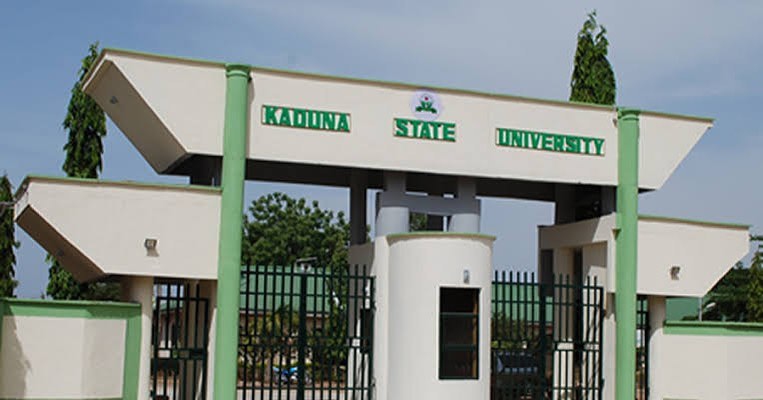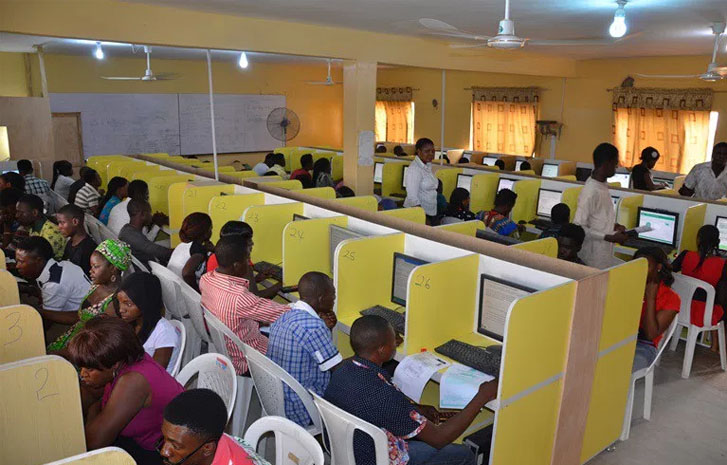The Kaduna State University has reviewed its tuition fees from N24,000 and N26,000 to N150,000 and N500,000, for indigenes and non-indigenes respectively.
The steep increment has been widely condemned by students; and across all social media platforms, with the Nigerian economy and most households still reeling from the effects of the coronavirus pandemic.
The management of KASU has confirmed the upward review of its tuition fees, adding that consultations are ongoing with stakeholders. The confirmation in a statement was made available to journalists by the university’s Public Relations Officer (PRO), Adamu Bargo.
Bargo explained that the upward review is due to the current realities and efforts to improve the standard of learning and research on campus. He added that the decision will also enhance the development of the university.
The spokesperson said that available records show that N400 million was being spent monthly and N4.8 billion annually by the Kaduna State government on payment of the university’s staff salaries.
He said that N25 million was also being spent as overhead monthly, while the university generates only N765.9 million annually.
“In the year 2020, there was the allocation of N10billion to the university meant for the execution of capital projects, but N5billion was spent on overhead and personnel cost.
“The upward review of the tuition fees is a difficult decision based on the reality of the present time.
“However, the university hopes to improve the quality of teaching and research activities as well as create a more conducive atmosphere of learning for staff and students,” Bargo said.
Students of Kaduna State University (KASU) rejected the enormous increase in tuition fees during a meeting with the students’ representatives, organised by the Dean of Student Affairs, Dr. Terhimba Wuam.
Abdulrazak Shuaibu, a medical student who spoke on behalf of the students, said that the tuition fees were increased from N26,000 to N150,000 for students in the Faculty of Arts, Management and Social Sciences.
Shuaibu, who is also a former President of Kaduna State Students Union, added that students in the Faculty of Medicine from the state will now pay N300,000 as against N24,000 while non-indigenes will pay N500,000.
He described the increase as “outrageous” considering the current economic hardship being faced by parents and the negative impact of COVID-19. He said that the students have rejected the increase and called on the state government to revert to the former fees.
“Currently, most students find it difficult to pay the N26,000 fees with a few dropping out of school eventually while some female students had to resort to prostitution to be able to pay.
“This is because the majority of us came from poor homes with our parents struggling to feed us and pay our school fees.
“Moreso, we are yet to recover from COVID-19 and the state government is increasing school fees. This is unfair and unreasonable,” he said.
He noted that although some of the students were enjoying the state government scholarship, the beneficiaries were less than 5,000.
“This also means that the government is giving us scholarships and collecting even more from us as tuition fees. We, therefore, reject the scholarship,” he added.
Also speaking, Mr. Adonalo Stephen, the Secretary-General, National Association of Kaduna State Students, pointed out that most of their parents were being sacked from the civil service, a development that has already thrown many families into economic crises.
Stephen, therefore, appealed to the state government to reconsider its stand and revert the tuition fee to the old rate so as not to deny many youths in the state university education.
Responding, the Vice-Chancellor Academy, Prof. Abdullahi Ashafa, acknowledged the tuition fee increase by the State Executive Council.
Ashafa explained that the university requires huge funding to efficiently provide the needed quality education and skills that would benefit the students and the society at large. He said that perhaps the tuition fee was increased to enable the school to generate the needed funds it requires to deliver its mandate.
He appealed to the students to be law-abiding and not to take the law into their hands in their quest to seek reversal of the fee increase.
Ashafa commended the students for the display of maturity and the choice of dialogue in presenting their concerns.

 Naira3 weeks ago
Naira3 weeks ago
 News4 weeks ago
News4 weeks ago
 Naira4 weeks ago
Naira4 weeks ago
 Naira3 weeks ago
Naira3 weeks ago
 Travel3 weeks ago
Travel3 weeks ago
 Jobs3 weeks ago
Jobs3 weeks ago
 Naira3 weeks ago
Naira3 weeks ago
 Investment4 weeks ago
Investment4 weeks ago


















